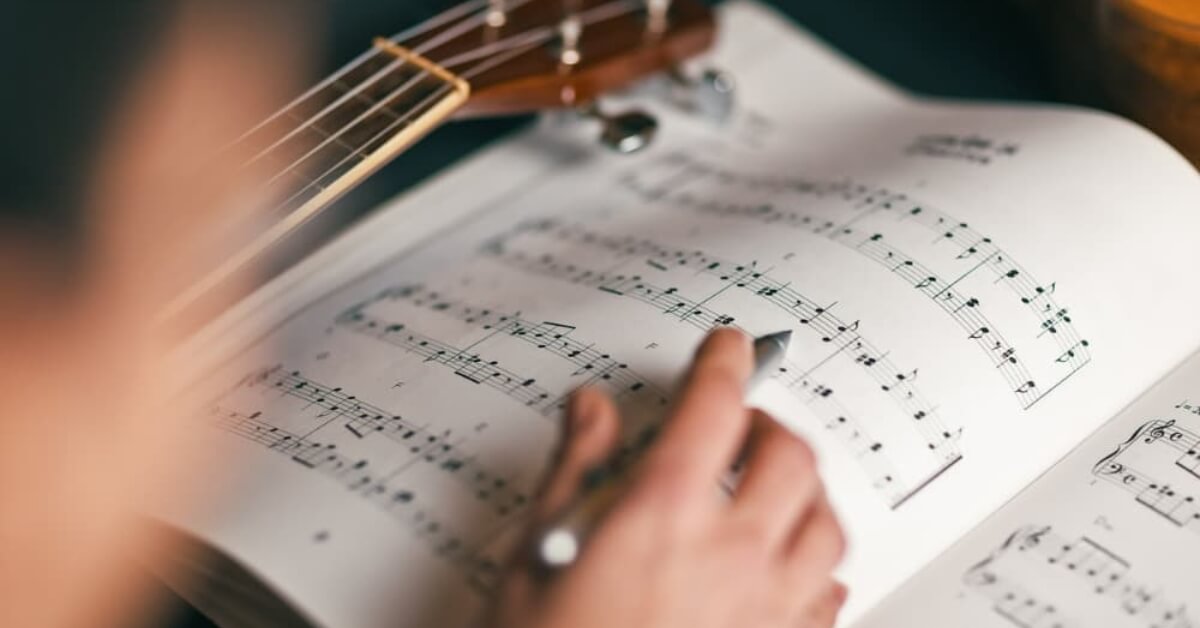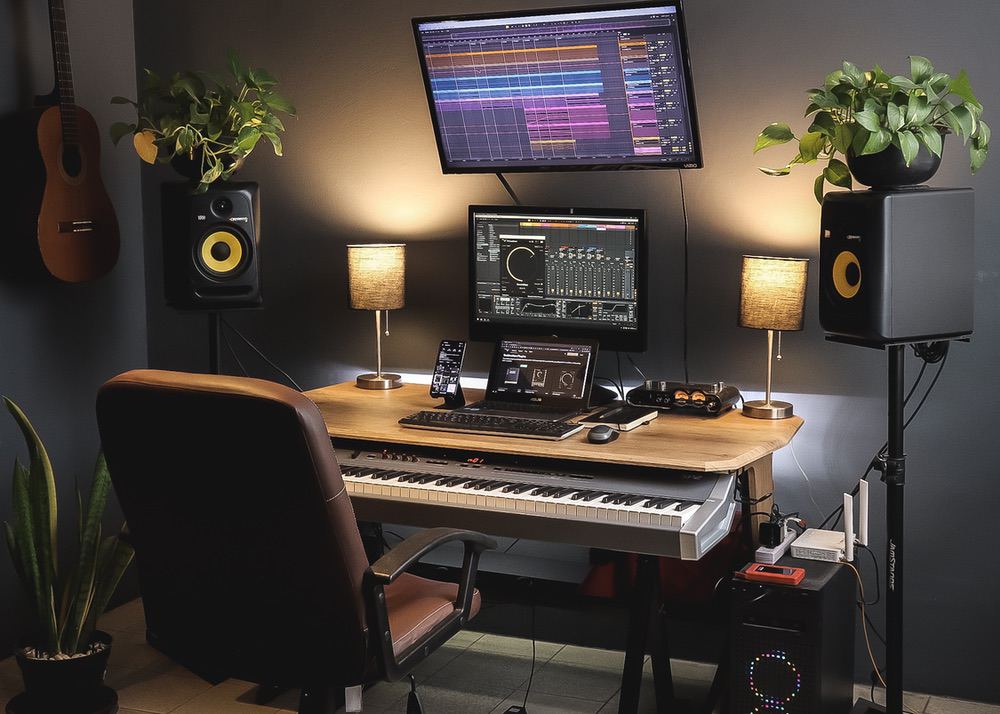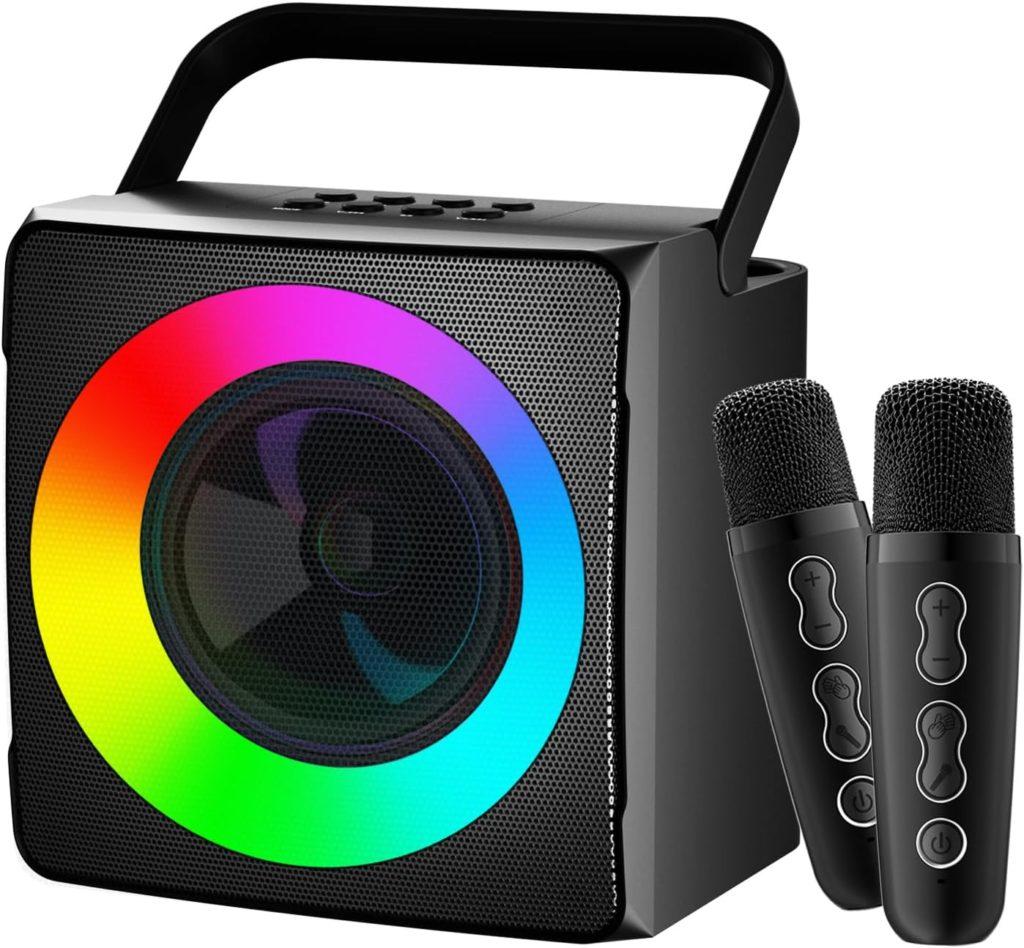
Key Takeaways:
- Music theory is crucial to becoming a great musician.
- It is the study of how music works and what makes sounds work together or clash.
- This knowledge helps musicians make more impactful music.
- Music theory can be learned independently but is more effective with a teacher.
There are many opinions about what makes a good musician. The ability to make music is undoubtedly critical, but even more so is the ability to understand music.
Musicians with a deep understanding of music can directly apply that knowledge in their practice and better interpret, perform, and write music. Talent exists without such technical data, but with it, skills become richer and more nuanced.
Learning music theory can make you a better musician. This guide explores the basics of music theory, six of the most crucial benefits, and what you can do to make learning easier.
Music Theory Fundamentals
Music theory is the technical language of music – it is a musical rule book and explains what we hear. Musicians can use it to express themselves better through their instruments or voice.
Music theory students learn keys, scales, notation, intervals, harmony, melody, pitch, and everything related to music besides actually playing it. Students learn what makes a note pairing sound off and how to read and play accented or syncopated rhythms. It is all the information required to fully understand a piece of music.
This basic and fundamental aspect of music seems restrictive to some people and may even stifle their creativity. The truth is, though, that music theory opens the door to the real world of music and all the innovation within, and the benefits don’t stop there.
Benefits of Learning Music Theory
Music theory teaches us what sounds good and what doesn’t and why. It seems simple and straightforward, but there are a lot of practical advantages to this knowledge.
Improves Communication and Collaboration
Music theory makes it infinitely easier to communicate with other musicians. It’s always easier to communicate when both parties speak the same language, and the musical language is no different. It’s much simpler to join in with a group of musicians when you don’t have to ask about the chord sequences and keys.
Strengthens Emotional Impact
Deeply emotional music comes from a place where you’re already very familiar with the chord progression, modes, and scales and can concentrate on the passion and emotion of the arrangement.
Improved Hooks
Learning and understanding melody allows you to create earworms that people never forget. Those catchy songs can only be written by people who genuinely understand how to pair notes with chords and write music that resonates with others.
Increased Improvisational Skills
Knowing how to improvise a piece of music is a learned skill, but the basics of music must be present first. Anyone can pick up an instrument and pick out a few chords, but not everyone can improvise a pleasant tune. Only educated musicians can aurally foresee chord progressions, be cognizant of harmonic replacements, and know musical forms without checking references.
Gain an Understanding of All Genres
People often stick to the type of music they like best and what they typically hear in their environment when they first set out to learn to play. Music students, however, are exposed to arrangements in all genres. They gain a greater understanding of note and chord paring and what music sounds like in different areas of the world.
Better Mixing Capability
People who don’t understand tune and key can find it challenging to make pleasing mixes. Music theory knowledge helps make more professional-sounding mixes where all the sounds align and complement each other.
Deepening your education is never a bad thing. That’s especially true when it’s something that feeds your soul and enriches your life.
Tips for Learning Music Theory
The most effective way to learn music theory is under the instruction of an experienced teacher. It’s always beneficial to have someone who can answer your questions and explain topics from a professional point of view.
You can also learn a great deal simply by studying independently. There are several actions students can take to boost their music theory knowledge, whether they study alone or with an instructor.
Free Tools
YouTube, books, websites, and free music theory courses are plentiful. A quick internet search will produce many options, so be sure to choose something that doesn’t feel overwhelming and easily fits into your schedule to give yourself a better chance of sticking with it.
Memorize Key Signatures
Memorizing sharps and flats in orders means you must only remember the number of sharps or flats in each key or the key signature. This circumvents the need for remembering a string of eight different notes every time you need to learn a new scale.
Apply What You Learn
Whether you’re learning from a teacher or a book doesn’t matter – but putting what you learn to use is imperative. Try improvising along with practicing well-known (and lesser-known) pieces.
Master the Major and Minor Scales
Familiarize yourself with the major and minor scales. Mastering them takes time, so don’t get discouraged if it doesn’t happen quickly.
Practice
Nothing takes the place of plain old practice. Repetition helps you learn songs, but it also helps you better understand notes, key signatures, and musical basics.
Learning every aspect of music theory can take a lifetime, but it is essential to musical growth and well worth the time and effort.
Music theory is a secret weapon for musicians who want to up their game. It’s also the perfect introduction for students who are undecided about their musical future or simply interested in the art of sound. There’s no downside to having a better understanding of the wonders of music.
Start Your Journey into Music Theory Today
Music lessons are fun and exciting, whether you’re learning to play an instrument or how to read music. Sloan is a music school that provides lessons (private, group, virtual) in various musical disciplines. We also sell top-of-the-line musical instruments and accessories, plus instrument rental programs. Contact Sloan School of Music for more information about musical instruments, accessories, lessons, and more.






